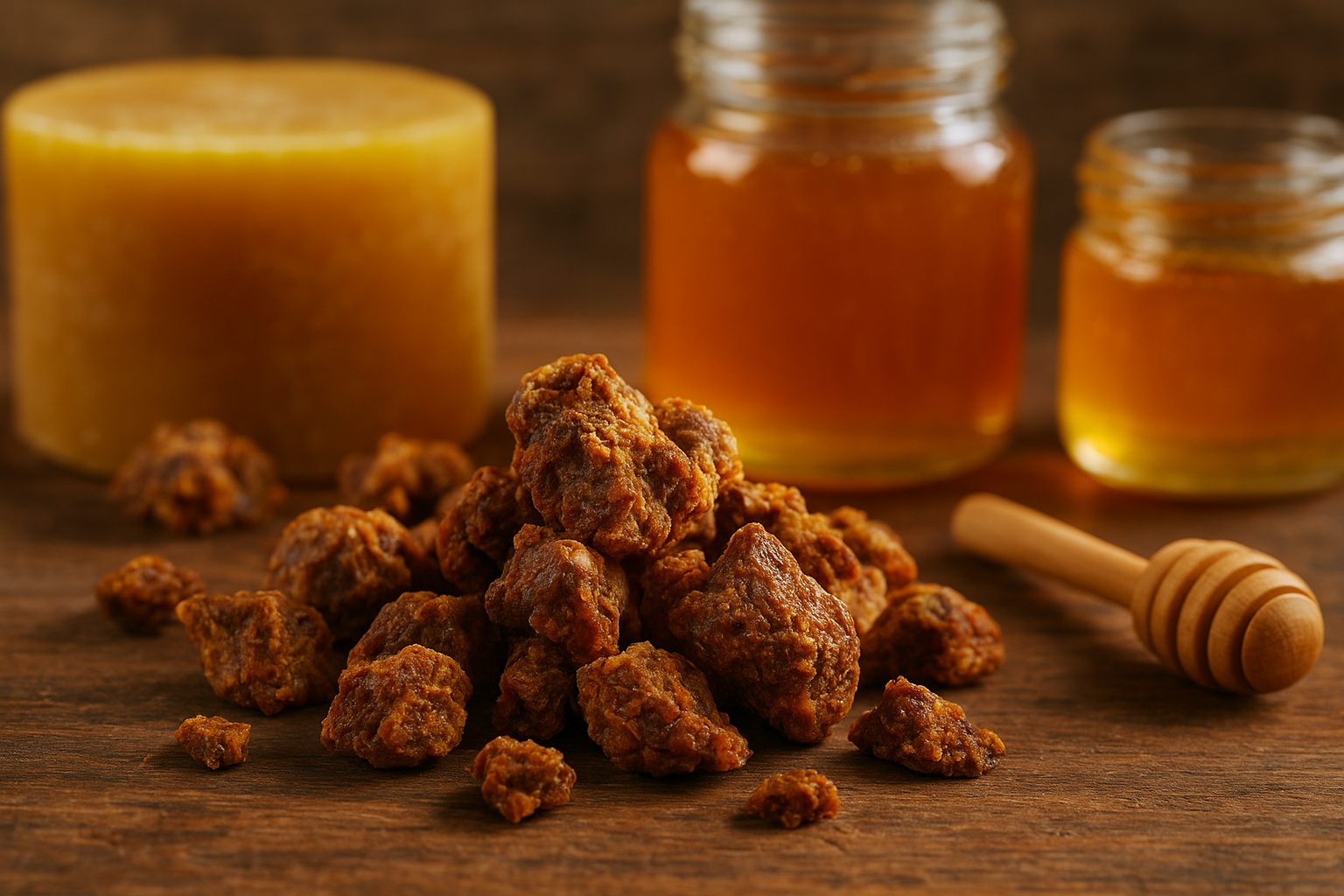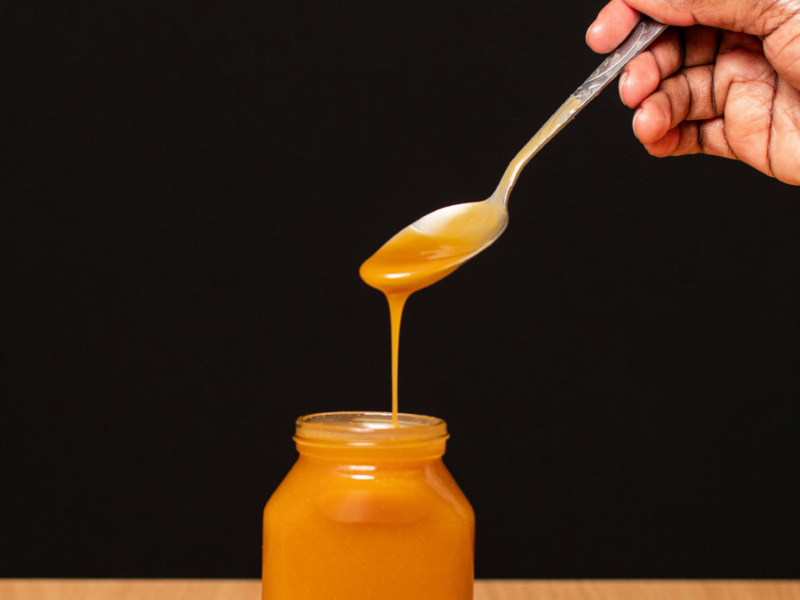Introduction: The Hidden Treasure of the Hive
When most people think about bees, they immediately picture golden honey or fragrant beeswax. However, there’s another precious product from the hive that has been used for centuries in traditional medicine: propolis. Known as “bee glue,” propolis is a resinous substance bees collect from tree buds and sap flows. They use it to seal gaps in the hive, protect against bacteria, and ensure colony health.
For humans, propolis is a natural superfood loaded with antioxidants, antimicrobial compounds, and healing properties. From ancient Egyptians to modern researchers, propolis has been celebrated as a natural remedy for immune support, wound healing, and more.
In this article, we’ll explore what propolis is, its incredible health benefits, practical uses, and how beekeepers can harvest it sustainably.
What Is Propolis?
Propolis is a sticky, dark substance bees make by mixing saliva, beeswax, and exudates gathered from plants and trees. Its composition varies depending on the local flora, but it always contains:
- Resins & balsams (50–60%) – from tree sap and buds.
- Beeswax (30–40%).
- Pollen (5%).
- Essential oils & organic compounds (5–10%).
For bees, propolis isn’t food—it’s a building and protection tool. Inside the hive, bees use propolis to:
- Seal cracks and strengthen the structure.
- Prevent the spread of bacteria, fungi, and viruses.
- Embalm intruders (like dead insects) that they cannot remove.
🍯 Related Articles
Health Benefits of Propolis
Research has shown that propolis is packed with over 300 active compounds, making it a powerful natural medicine.
1. Boosts the Immune System
Propolis is rich in flavonoids and polyphenols, which enhance the body’s ability to fight infections. It’s often used as a natural supplement to strengthen immunity.
2. Antibacterial and Antiviral Properties
Studies suggest propolis can inhibit the growth of harmful bacteria and viruses, making it effective in preventing respiratory infections, colds, and flu.
3. Wound Healing and Skin Health
Propolis promotes cell regeneration, reduces inflammation, and fights infections, which makes it useful in treating burns, cuts, and skin conditions like eczema.
4. Oral Health Benefits
Propolis extracts are used in natural toothpastes and mouthwashes due to their ability to reduce plaque, gingivitis, and sore throats.
5. Anti-Inflammatory Effects
Chronic inflammation is linked to many diseases, including arthritis and heart disease. Propolis helps reduce inflammation naturally.
6. Potential Cancer-Fighting Properties
Early research suggests propolis may slow tumor growth and improve the effectiveness of chemotherapy treatments.
Common Uses of Propolis
Thanks to its versatility, propolis is found in a variety of natural health products, including:
- Capsules and supplements for immunity.
- Tinctures and extracts for colds and sore throats.
- Creams and ointments for skin healing.
- Mouth sprays and lozenges for oral health.
- Cosmetics like shampoos, face masks, and lip balms.
How Beekeepers Harvest Propolis
Beekeepers have developed sustainable techniques to collect propolis without harming the colony.
Step 1: Use a Propolis Trap
A propolis trap is a flexible plastic grid placed at the top of the hive. Bees naturally fill the holes with propolis to block airflow.
Step 2: Freezing the Trap
Once filled, the trap is removed and frozen. This hardens the sticky resin, making it easier to collect.
Step 3: Scraping and Cleaning
Frozen propolis is scraped off and then cleaned to remove debris.
Step 4: Processing
Depending on the intended use, propolis can be:
- Left raw.
- Extracted into alcohol-based tinctures.
- Processed into powders or capsules.
Sustainability in Propolis Harvesting
To protect both bees and ecosystems, responsible beekeepers follow sustainable practices:
- Avoid over-harvesting, leaving enough propolis for the colony’s defense.
- Place hives near diverse flora to ensure high-quality resin.
- Use chemical-free hives to maintain purity.
Propolis vs. Honey vs. Beeswax
- Honey: Sweet, nutritious food for bees and humans.
- Beeswax: Used for building honeycombs and crafting candles or skincare.
- Propolis: Medicinal “bee glue” with powerful health benefits.
Each product has unique properties, but propolis stands out for its medicinal value.
Conclusion: The Beekeeper’s Hidden Superfood
Propolis is truly a bee treasure—a natural antibiotic, antiviral, and healing superfood. For beekeepers, harvesting propolis not only diversifies their products but also promotes holistic health solutions.
By raising awareness about the benefits of propolis, we can support sustainable beekeeping practices and help people discover this ancient remedy for modern wellness.
🐝 Propolis is more than glue—it’s nature’s gift for health and healing.



